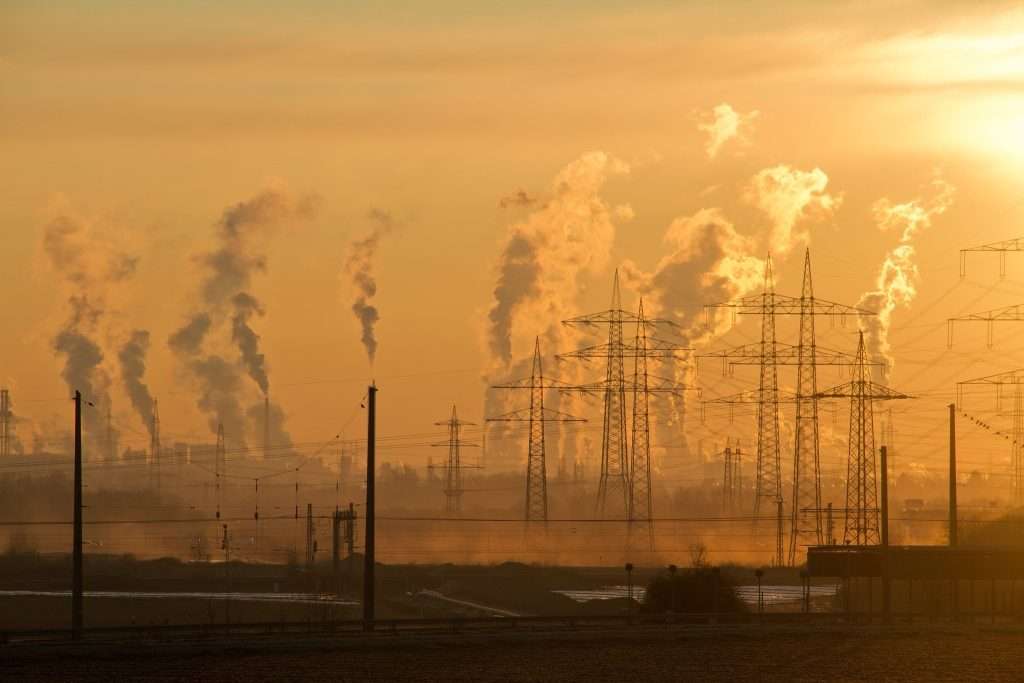Goldman Sachs says it’s turning its attention to the climate crisis, setting ambitious 2030 targets to reduce carbon emissions across three key areas even as oil demand is expected to reach all-time highs.
According to a new report from the Goldman Sachs Group, it’s working to help its oil and gas clients reduce emissions by 17 to 22 percent, the power industry by 48 to 65 percent, and automakers by 49 to 54 percent by 2030.
“As a financial institution, we believe the most meaningful role we can play in the global climate transition is to drive decarbonization in the real economy in partnership with our clients,” Chief Executive David Solomon said in the report.
“This will take time and require thoughtful public policy, along with the private and public sectors working together to achieve a more sustainable future,” Solomon said.
The announcement comes after the bank said in March that it’s working to hit net-zero targets by 2050. The new targets for 2030 are “focused on sectors where we see an opportunity to proactively engage our clients, deploy capital, and invest in new commercial solutions,” according to the report.

In October, Goldman Sachs joined the UN-back Net Zero Banking Alliance. Banks are being urged to support green development and divest from fossil fuels in order to hit Paris Accord targets of keeping global temperatures from rising more than 1.5° Celsius above pre-industrial levels.
According to Solomon, the three key areas targeted are going to need “massive” support in the way of financing and strategy. Goldman Sachs’ researchers say nearly $60 trillion in financing for sustainable infrastructure development is needed to hit the 2050 targets.
“Achieving the net-zero target Goldman and other banks have committed to means stopping support for fossil fuel expansion immediately. Anything less is just an attempt at good PR,” Sierra Club Fossil-Free Finance Campaign Manager Ben Cushing, said in a statement.
Goldman Sachs plans to direct capital toward “innovative climate solutions” including its work with Bloomberg Philanthropies and the Asian Development Bank as well as a first-of-its-kind carbon removal initiative launched with Conservation International.
Oil demand still rising
The news comes as Goldman Sachs predicts global oil demand to hit record-high levels over the next two years.
“You’ve already had record-high demand right before this latest [Covid] variant and you’re adding higher jet demand and the global economy is still growing,” Damien Courvalin, Goldman’s head of energy research, told reporters last week.
“You’ll see how we will average a new record high in demand in 2022, and again, in 2023.”
The bank says the growing shift to electric vehicles will reduce oil demand a bit in the coming years, particularly as consumers are incentivized by tax credits to shift. But the bank says aviation and ground transport still use a significant amount of oil, and both industries have a long way to go.
“You’re selling nearly 6 million EVs (electric vehicles) a year now,” Courvalin said. “That still is less than 100,000 barrels per day of demand destruction on a 100 million barrels per day market so it’s still a small piece.”

But the industries are pivoting. United Airlines made history with its first commercial flight powered by sustainable fuel. Under current regulations, only up to 50 percent of jet fuel on a flight can be from sustainable or bio-based sources.
Electric car manufacturer Tesla is working on a fully electric semi-truck, but it continues to face delays, despite hints of progress earlier this year.
“Please don’t read too much into this,” Tesla founder Elon Musk tweeted last month. “As mentioned publicly, Tesla is constrained by chip supply short-term & cell supply long-term. Not possible to produce additional vehicles in volume until both constraints are addressed.”
Goldman Sachs says it’s also looking at carbon credits to help with its 2030 goals. But carbon credits have come under fire for displacing the problem.
“Offsetting projects simply don’t deliver what we need—a reduction in the carbon emissions entering the atmosphere,” Alia Al Ghussain writes for Greenpeace. “Instead, they’re a distraction from the real solutions to climate change. As a result, offsetting allows companies like BP and Shell as well as airlines to continue with their unsustainable behaviour while shifting their responsibility for the climate onto the consumer.”
Goldman Sachs says it will only use carbon credits if and when it can verify the quality.


